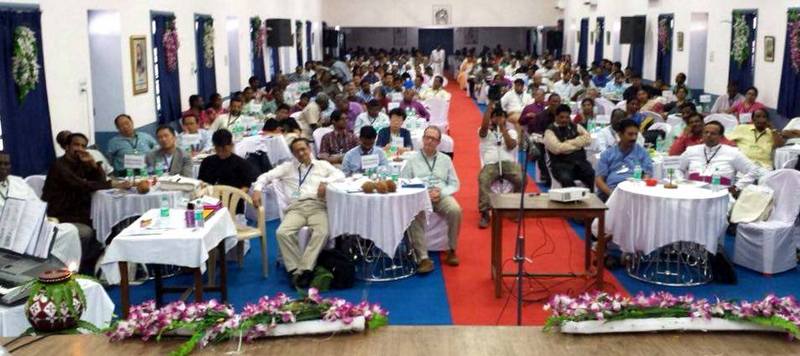“Human dignity is the basis of a just and inclusive community”, tells CCA General Secretary at NCCI Quadrennial Assembly

“Human dignity is the basis of a just and inclusive community and the dignity of the human person is a fundamental right in itself”, CCA General Secretary Dr. Mathews George Chunakara stated at the 28th quadrennial assembly of the National Council of Churches in India (NCCI).
Delivering the first thematic address at the assembly being held from 28 to 30 April in northern Indian city of Jabalpur on the theme ‘Towards Just and Inclusive Communities’, the CCA General Secretary said, “Laws that uphold the value of the human dignity and laws that make the downtrodden uplifted from the bondages are needed to reach the goal of justice and inclusiveness in any society”.
He added that “the emerging global system hinders the development of a just and sustainable order in various ways and an international economic order with fair international trade and investment process becomes an alien concept or principle as far as a vast number of the poor and marginalised in the world are concerned”.
“The role of civil society in achieving the goal of just and inclusive communities in any society is pertinent whether it is at the global or national levels. Broad sectors of actors are needed to attain this goal. Civil society included such broad sectors in any given context, including faith based organisations. Ecumenical movement is also a part of the civil society”, said Dr. Mathews George Chunakara.
Hosted by the Church of North India, the quadrennial general assembly is attended by more than 400 participants representing 30 member denominations of NCCI from all over India.
At the outset, the CCA General Secretary brought greetings to the assembly on behalf of Asian churches and said Indian churches played an important role in the formation of CCA and most member churches of NCCI are members of CCA.
Founded in 1914, the NCCI was a founding member of CCA and has a membership of 14 million Christians in India.










